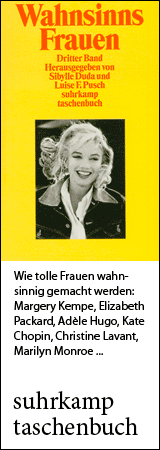
(Louise Franziska Hartung)
born on January 6, 1905 in Münster, Germany
died on February 24, 1965 in Berlin, Germany
German concert singer, music teacher, employee at the Berlin Central Youth Welfare Office, initiator of the Monday Reading Circles
120th birthday on January 6, 2025
Biography
In the correspondence between Astrid Lindgren and Louise Hartung, it appears as if Hartung personally saw to it that everyone in Germany – or at least everyone in Berlin – had heard of Astrid Lindgren and knew of her books. Louise Hartung would have probably remained more or less unknown had she not exchanged these over 600 letters with Lindgren; the wider public learned of the correspondence between Astrid Lindgren and her German friend in 2016 when Ich habe auch gelebt!, a collection of their letters, was published in Germany.
Louise Hartung was born in Münster in 1905, the youngest of eight children. Her mother died during her birth, and even though her brothers and sisters and father looked after her, she ended up spending a lot of time alone. She taught herself to read using the family Bible even before she started school (at the Freiherr-vom-Stein-Schule).
Initially she had wanted to become a gardener, but she changed her mind and began training as a singer in the 1920s. She focused first on Italian opera, and then moved on to modern cabaret and songs of German romanticism. She undertook study trips to Paris, Milan and also to Berlin, where she settled in 1925/26. She soon met artists from all over Europe and moved in bohemian circles. She was close friends with Nell Walden; the painter, organist and art collector introduced her friend to artists in the association Der Sturm and to the actress and singer Lotte Lenya. In 1928, both Hartung and Lenya took part in the first staging of the Threepenny Opera. Hartung was considered talented; she gave concerts and recorded several gramophone records. It was Nell Walden who told her she was born to sing Lieder – which is why she gave up her opera career and travelled with Nell to Ascona in 1932, leaving everything behind. She was never to regret it.
When composer Kurt Weill, to whom Lenya was still married at the time, was warned to leave Berlin after the Reichstag fire in February 1933, Lenya and Hartung packed his things and drove him to Munich. From there, he went into exile in France. Together with Selma Stern Täubler, Hartung represented Lenya and Weill later that year for their divorce proceedings in Germany since both chose to remain abroad.
Thanks to Lenya, Hartung was offered a small role in London at the Savoy Theatre in 1933. When she returned to Berlin, she was denied membership in the Reich Chamber of Culture and was banned from performing for several years. She lived in constant fear of being denounced. Before she had helped her Communist friends; now they helped her. She obtained a press pass and worked for a time as a photographer for the actress Lucie Höflich, who was also a friend and who, together with the actress Ilka Grüning, ran the State Acting School in Berlin in 1933/34. She sang together with Höflich at recitals with the pianist Hertha Klust accompanying them.
During the Second World War, Hartung was forced to perform for the Wehrmacht with her friend, the soprano Maria Schreker (wife of the composer Franz Schreker), and other colleagues. She lived with Schreker during the bombing of Berlin. However, she was able to hide Jewish friends in her house in Potsdam.
From 1947, Hartung was employed by the municipal authority of Greater Berlin and became an SPD member of parliament for her constituency of Wilmersdorf, where she also lived. In the following years, she worked on rebuilding the cultural scene in Berlin, initially in the field of classical music, where she was involved in the founding of orchestras, choirs, music festivals and concert series, among other things.
She took over the management of the city’s Office for Music, which in the early 1950s was placed under the direction of the department for youth welfare that was headed by SPD politician Ella Kay. The city’s Central Youth Welfare Office was committed to ensuring that “children get their rights” and its pedagogic approach was founded on respect for children and young people and for their education. The main goal during this reconstruction period in Germany was to overcome National Socialism and racial discrimination and to create the conditions necessary for democratic development. Hartung was primarily responsible for promoting reading. She set up the Monday Reading Circles where children in selected institutions had children's books read to them by adults. In Tip, an arts and culture magazine published by the Central Youth Welfare Office for children in West Berlin, Hartung often wrote about the books she recommended. After having read what she considered the best book in the world – Pippi Longstocking – it was most often books by the Swedish author Astrid Lindgren that she recommended.
In the 1950s, Hartung worked for the FSK (Voluntary Self-Regulation of the Movie Industry) in addition to her position at the youth welfare office, and was on the award committee for the Federal Ministry's children's and youth film prize.
Hartung was also instrumental in setting up a welfare service for orphaned, war-traumatized and delinquent children and adolescents in Berlin. She encouraged parents to play games with their children under the motto “And on Sundays, the whole family plays together.”
Looking back, she realized that in total her studies of various subjects added up to 25 years: two years of dance and gymnastics, eight years of music, three years of acting and directing at the Deutsches Theater, one year of Italian, one year of Russian, one year of Swedish, three years of psychology, three years of law and three years of administrative sciences.
She rejected several offers to work abroad, including one for the UN. She preferred to devote herself to the promotion of Astrid Lindgren's books in Germany.
In October 1953, Hartung met the author in person when Astrid Lindgren accepted an invitation of the Central Youth Welfare Office and came to Berlin. When Lindgren expressed a wish to see the city, Hartung drove her through the rubble of reconstruction to East Berlin and shared stories of her previous life with the author. This visit resulted in a close friendship and eleven years of correspondence that lasted until Hartung's death. The two visited each other and travelled together. Hartung fell in love with Lindgren. Though the author could not reciprocate Hartung's love, she always made it clear to her close friend how important she was to her and she always made time for her. Hartung, meanwhile, continued to see to the distribution of Lindgren's works in Germany. She would sometimes even offer advice for translations. She became a loyal advisor to the author, who trusted her friend completely and often asked her for advice.
When Hartung was admitted to the Virchow Hospital with a tumor in 1964, Lindgren visited her for what was to be the last time in December. In February 1965, her long-time friend Gertraud Lemke took Hartung home against the doctors' advice. Louise Hartung died four days later.
(Text from 2017; translated with DeepL.com; edited by Ramona Fararo, 2024.
Please consult the German version for additional information, pictures, sources, videos, and bibliography.)
Author: Doris Hermanns
If you hold the rights to one or more of the images on this page and object to its/their appearance here, please contact Fembio.



